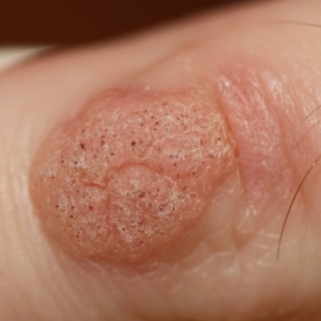Why do I keep getting warts?
Warts are a type of skin infection caused by the human papillomavirus (HPV). There are many different strains of HPV, and some strains are more likely to cause warts than others.
It’s possible that you may have come into contact with the virus repeatedly, which could explain why you keep getting warts. HPV can be spread through skin-to-skin contact, and it’s most commonly spread in environments where people walk barefoot, such as communal showers or swimming pools.
As warts are highly contagious, it is also possible that you are reinfecting yourself, spreading the virus on your own skin so that you get more warts appearing.
There are a few things you can do to reduce your risk of getting warts:
- Avoid touching warts on yourself or others, as this can spread the virus
- Practice good hygiene by washing your hands regularly and keeping your skin clean and dry
- Wear protective footwear in public showers or pool areas
- Boost your immune system by eating a healthy diet, getting enough sleep, and managing stress
If you continue to get warts then it’s worth looking at treatments to get rid of them. Getting rid of warts is one of the best ways of breaking the cycle of spreading and reinfection.
Over the counter wart remedies
Most people try an over the counter remedy in the first instance. Over-the-counter (OTC) wart remedies can be effective, but their success rate can vary depending on the individual and the type of wart. Where a wart is well established, then it can be something of an uphill battle to get rid of it with topical solutions, although it is always worth a go.
The more common OTC wart remedies include salicylic acid. Salicylic acid is a keratolytic agent that works by dissolving the protein keratin that makes up the wart. It is available in different forms such as liquid, gel, and patches. The treatment is usually applied daily for several weeks until the wart disappears. You may also be asked to ‘file’ the wart to get rid of diseased cells and expose fresher skin to the solution. It can take a while to see results and it doesn’t always work. However, this is the solution that is most likely to be prescribed by a GP.
There are also natural remedies like tea tree oil, aloe vera, and duct tape. These may appeal as a gentler, safer option. However, their effectiveness is not well established and they may not work for everyone.
Cryotherapy products are another option. These work by freezing the wart with liquid nitrogen. This method is a bit more aggressive and also works as a one off rather than a daily treatment. Cryotherapy can be effective but is typically more painful and may require multiple treatments. In addition, the strength of cryotherapy treatment available over the counter is not equivalent to that which you would experience by having treatment with a medical professional.
Wart Removal By Doctors/Surgeons
The team at London Mole Removal Centre are highly trained and experienced in dealing with warts and other difficult skin lesions. The solutions recommended will depend on the the doctor’s assessment and diagnosis of the problem. Clinics offer:
- Cryotherapy (freezing) – Simple warts are frozen off in a procedure known as ‘cryotherapy’ which uses intense cold. Treatment may involve 2-3 sessions to ensure complete removal of the wart.
- Laser treatment – laser is a more effective treatment which can be used for stubborn and resistant warts. The laser energy is focused on the wart, and the heat generated destroys the cells that make up the wart. The treatment also seals the wound for rapid healing. The area may be sore and tender for a few days, but most patients can resume their normal activities immediately.
- Skin surgery – large and very resistant warts can be surgically removed if required. This is a quick procedure and entirely painless using local anaesthetic.
Book an Appointment
London Mole Removal Centre offer appointments at a choice of 5 private skin treatment centres based in London and Bristol. All consultations and treatments are carried out in person by doctors who are specially trained in the latest laser and skin surgery techniques and are highly experienced in the field. Most skin lesions can be removed at the same appointment as the consultation, but there is no obligation to proceed unless and until both the patient and doctor are completely happy to do so.
For more information or to book a consultation, please complete the form on this web page or call 020 7731 3791.
They may recommend treatments such as freezing or removing the wart, or they may suggest other ways to reduce your risk of getting warts in the future.



